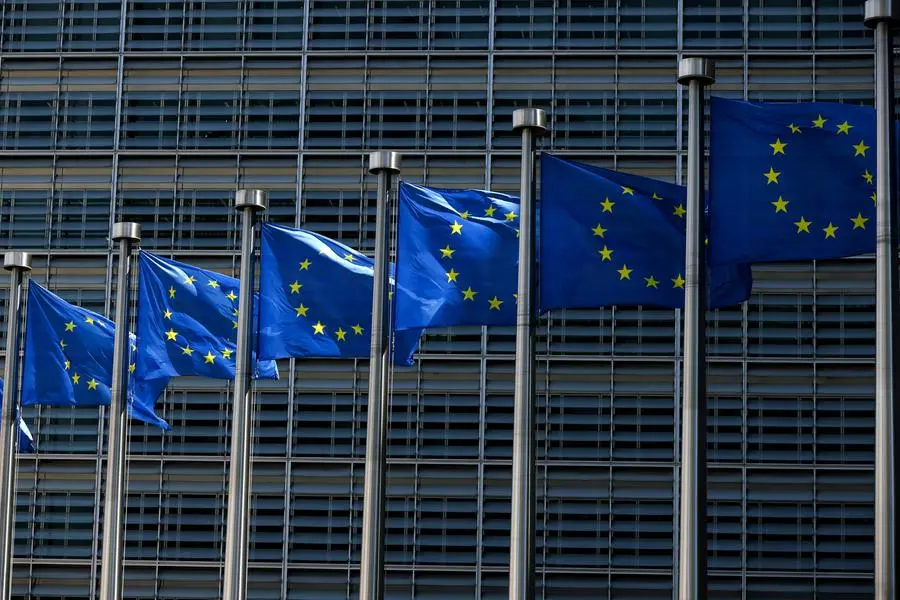PHOTO
The European Union, whose executive on Wednesday recommended opening formal membership talks with Ukraine and Moldova, has gone through several waves of expansion in the past 50 years.
The European Commission also recommended granting candidate status to Georgia, potentially putting it on the long road to membership.
The verdicts, in the European Commission's annual reports on candidate countries' progress towards EU norms, will go to the bloc's 27 leaders at a summit in December to decide to start talks or not.
These could take years or decades.
On the eve of the proposal Ukrainian President Volodymyr Zelensky vowed that his country, invaded by Russia in February 2022, would "be in the European Union".
Several enlargements, one departure
Founded in 1957, the European Economic Community (later renamed the EU) started out with six members -- Belgium, France, Italy, Luxembourg, the Netherlands and West Germany.
In 1973, Britain, Denmark and Ireland joined, followed by Greece, Portugal and Spain in the 1980s.
In 1995, the bloc began expanding eastwards, admitting Austria, Finland and Sweden in a leap that gave it a shared border with Russia for the first time.
In 2004 came the "big bang" enlargement from 15 to 25 members, with eight ex-Communist Eastern European countries and two Mediterranean nations raising EU flags in one swoop.
In 2007, Bulgaria and Romania took the EU to 27 members and in 2013 Croatia became the 28th.
Britain became in 2020 the first member state to leave the EU, after a seismic 2016 referendum vote to quit the bloc, taking its members back down to 27.
Growing waiting list
The war in Ukraine has reignited the EU's drive to expand into central and eastern Europe.
In December 2022, Bosnia became the fifth Balkans nation to be given candidate status, following North Macedonia (2005), Montenegro (2010), Serbia (2012) and Albania (2014).
Kosovo in 2022 also applied but has yet to be given candidate status.
NATO member Turkey has been a candidate since 1999 and launched membership talks in 2005.
But Ankara's relations with the EU have deteriorated sharply since 2016 due in part to President Recep Tayyip Erdogan's crackdown on dissent in the wake of a failed coup.
For many EU member states, the long-stalled accession talks are dead in all but name. In September, Austria -- long opposed to Turkey's membership -- even called for the process to end.
Ukraine, whose European ambitions have fuelled two revolutions since 2004, and Moldova brought to eight the number of countries in the EU's waiting room.
The two former Soviet republics were among six countries with which the EU formed an Eastern Partnership in 2009, trading closer economic and political ties for reforms.
The others were Armenia, Azerbaijan, Georgia and Russia's ally Belarus, which later opted out.
Georgia on Wednesday also gained the recommendation for EU candidate status it has been pressing for.
Years of negotiations
Gaining full membership is a complex process which usually takes several years, as aspirants have to take on board the vast body of EU law.
While Finland was admitted in fewer than four years, it took the three ex-Soviet Baltic states of Estonia, Latvia and Lithuania nine.





















